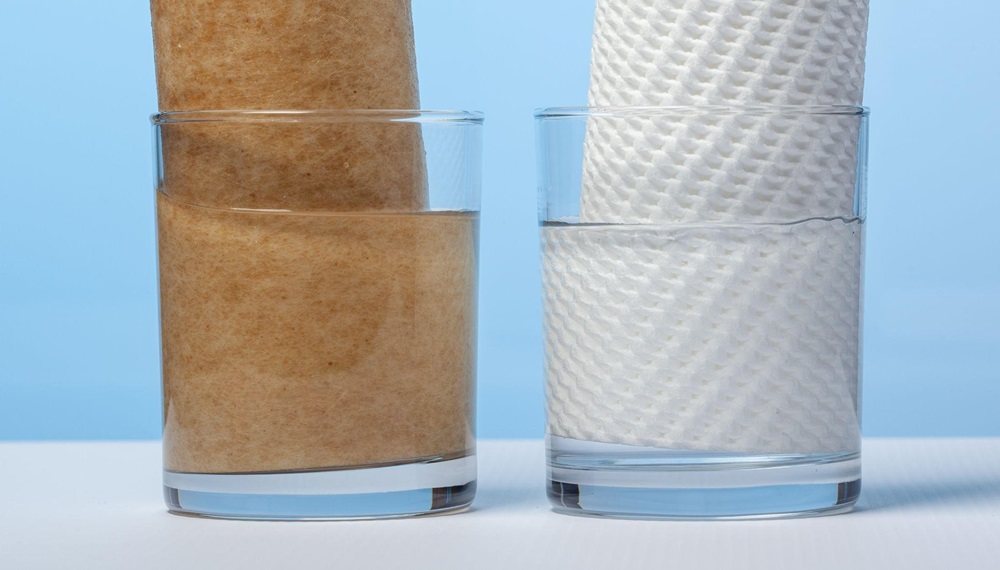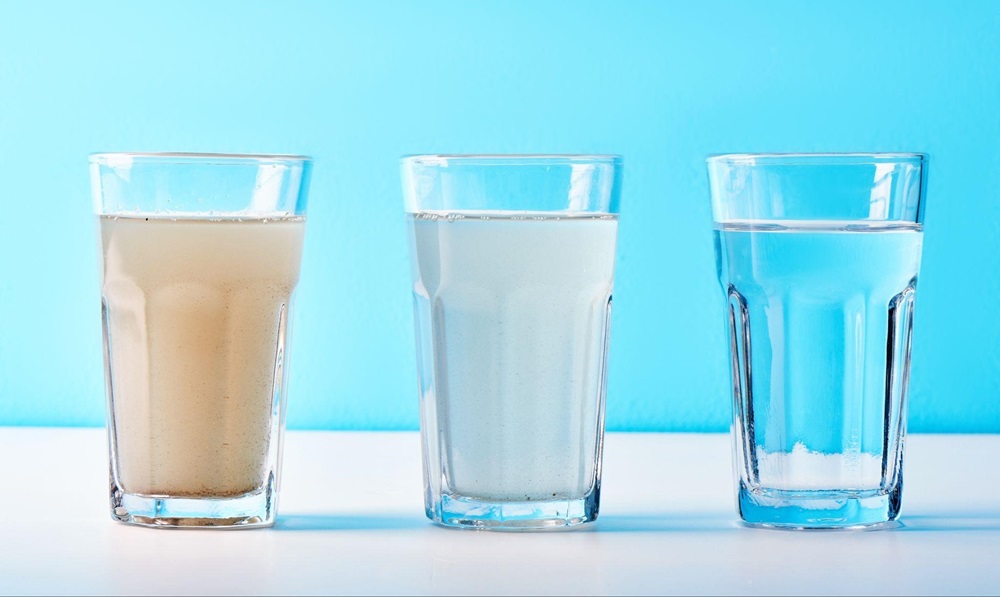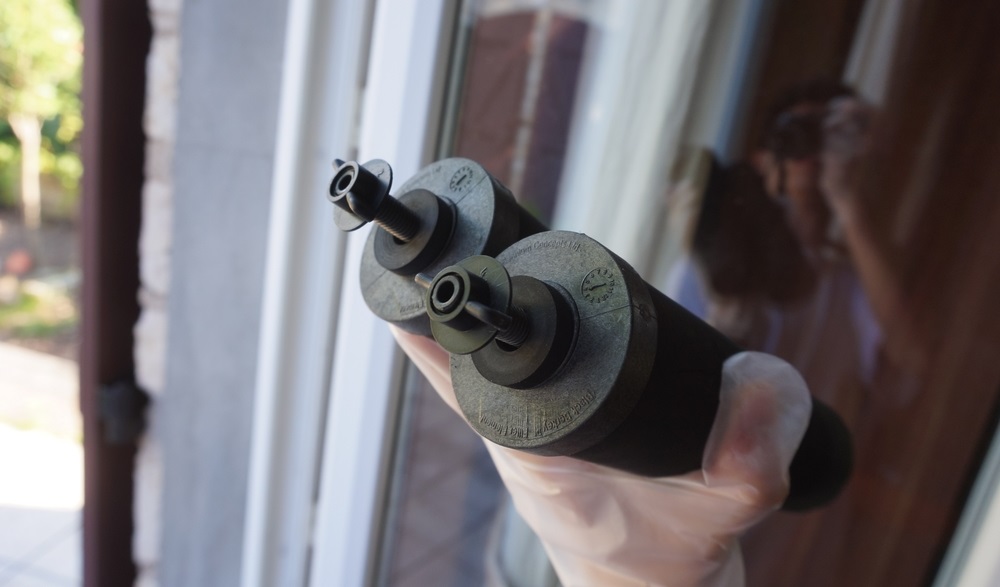The best way to get a refreshing, clean drink of tap water is by pouring it from a Berkey water filtration system. However, if these filters are not replaced regularly, that glass of H2O will not live up to your expectations of taste and purity.
Water filters are essential to clear impurities and harmful contaminants from your drinking water, but maintenance is required for optimum performance.
In this article, we will discuss why you must replace your Berkey water filters, how often, and much more.
Why Berkey Water Filters Require Regular Replacing

To understand why a water filter needs replacing after a certain amount of time, we first need to look at what a water filter does.
A Berkey water filter system uses natural gravitational pull to move water downwards through layers of sediments without removing the ionic minerals we want to keep. The user pours a water source into the upper chamber, and the water travels into the microporous filter, which collects impurities along the water’s travels.
Once the filtration process is complete, the clean water exits into the lower chamber and is ready to serve.
What Impurities Does the Berkey Water Filter Collect?
The Black Berkey filter uses three methods for removing impurities: microfiltration, adsorption, and absorption.
- Absorption: Heavy metals are removed from your drinking water through absorption; they are attracted to filter elements and bond to them.
- Adsorption: This removes even more contaminants by creating an ionic barrier; this replicates the effect of “static cling” on the filter.
- Microfiltration: These filters use microscopic-sized pores to collect even the smallest contaminants.
In short, all three methods used in Black Berkey filters collect impurities, contaminants, and particles and hold them inside the filter, keeping them out of your water.
What Happens When the Filter Is Full?

As the filter does its job, it collects more contaminants, which begin piling up. After some time, no room is left in the filter for more contaminants. This can lead to a number of issues.
- It will be less effective. Once the space in the filter is limited, particles will have an opportunity to escape and flow into the bottom chamber.
- Your water will taste off. Since contaminants are present in your drinking water, you will notice the taste is off and not as fresh as you’re used to.
- Your water will smell. Some impurities can create a foul smell, like rotten eggs or a metallic smell, making your water undesirable.
- You will lose water pressure. The water will trickle out much slower because the filter is clogged, making it hard for the water to pass through.
- The colour may be off. Unfiltered water (depending on the original source) could look murky or dirty.
If the filter is left for too long, you might also notice it developing black mould or mildew.
If you are unsure if your filter is still functioning properly, test it.
The Red Food Colouring Test must be done periodically to determine if your Berkey filter works effectively. But you have to make sure you’re using the red food dye. Natural or organic food colouring or things like beet juice won’t work for this test.
To do the test, place your upper chamber on four to six strong glasses so that each filter or plug sits over a glass. Fill the upper chamber with enough water to cover the element, then add the red dye.
Let the upper chamber filter the water for five to ten minutes or until the glasses are full. If the water is clear, your filters are working. If any dye leaks through, you have to determine where it’s coming from. It could be from a plug, a loose wing nut, or a faulty filter element.
Before doing this test, there are some important caveats. The most common red food dye in Canada, Club House, contains citric acid that can give false results. If you’re using Club House, use 1/4 teaspoon in a full upper chamber of your Travel, Big or Royal Berkey or a 1/2 teaspoon in your Imperial or Crown Berkey. Mix in well.
Also, you must remove any PF-2 Fluoride filters before doing this test, as the dye will damage them.
How Often Should Berkey Filters Be Replaced?
When you need to replace your Berkey filters is based more on use than time. Each Berkey filter has its own recommendations for when to switch them out.
- Black Berkey Water Filters: Replace after 22,713 litres of water
- Berkey PF-2 Filters: Replace after 3785 litres of water
- Sports Berkey Filter: Replace after 416 litres of water
Sometimes, Berkey filters can become clogged but don’t necessarily need to be replaced. The tell-tale sign that this is the problem is slow-flowing water. If you notice a drop in your flow rate, give your filter elements a good clean.
How to Clean Clogged Berkey Filters
Slow-flowing water doesn’t always mean you have to rush out and buy a new filter. Sometimes, particles will clog the pores, and these can be cleaned up pretty easily.
- Remove the filter from the unit.
- Check the outside of the filter for a slimy residue (which proves your filters are working).
- Using a non-scratch Scotch Brite Pad, strip away the residue layer until a fresh carbon layer is noticeable.
- Place the filter back into its housing unit.
- Prime the filter before running it to remove possible air pockets.
All Berkey water filters are designed to withstand up to a hundred cleanings in their lifetime. This means you don’t have to worry about doing any damage or limiting the benefits of your filter as long as you follow the proper cleaning procedure.
White Floaters in Berkey Water
You might occasionally notice white floaters in your water even after it has passed through the filter. While this may be alarming, the floaters are nothing more than a small clump of natural minerals present in drinking water all the time.
If you are seeing these mineral clumps, it is because the highly mineralized water pH goes up during filtration, bringing your filtered water’s normal acidity levels down. Because of the lower acidity, the water is no longer capable of breaking up these heavier mineral particles.
Even with the white floaters, your treated water is 100% safe to drink and will be just as clean and pure as it is without them.
Is Replacing Your Berkey Water Filter Important?
When you purchase a Berkey Water Filtration System, you are buying a product that will last many years and water cycles, keeping your drinking water fresh and clean.
But if you don’t replace the filters regularly on the recommended schedule, you risk reducing the life of the system and not getting the pure water you purchased the system for.
We recommend sticking to the guide provided by Berkey and changing out your filters regularly to ensure you’re getting safe drinking water every time.


